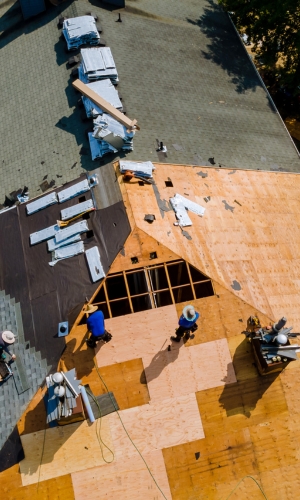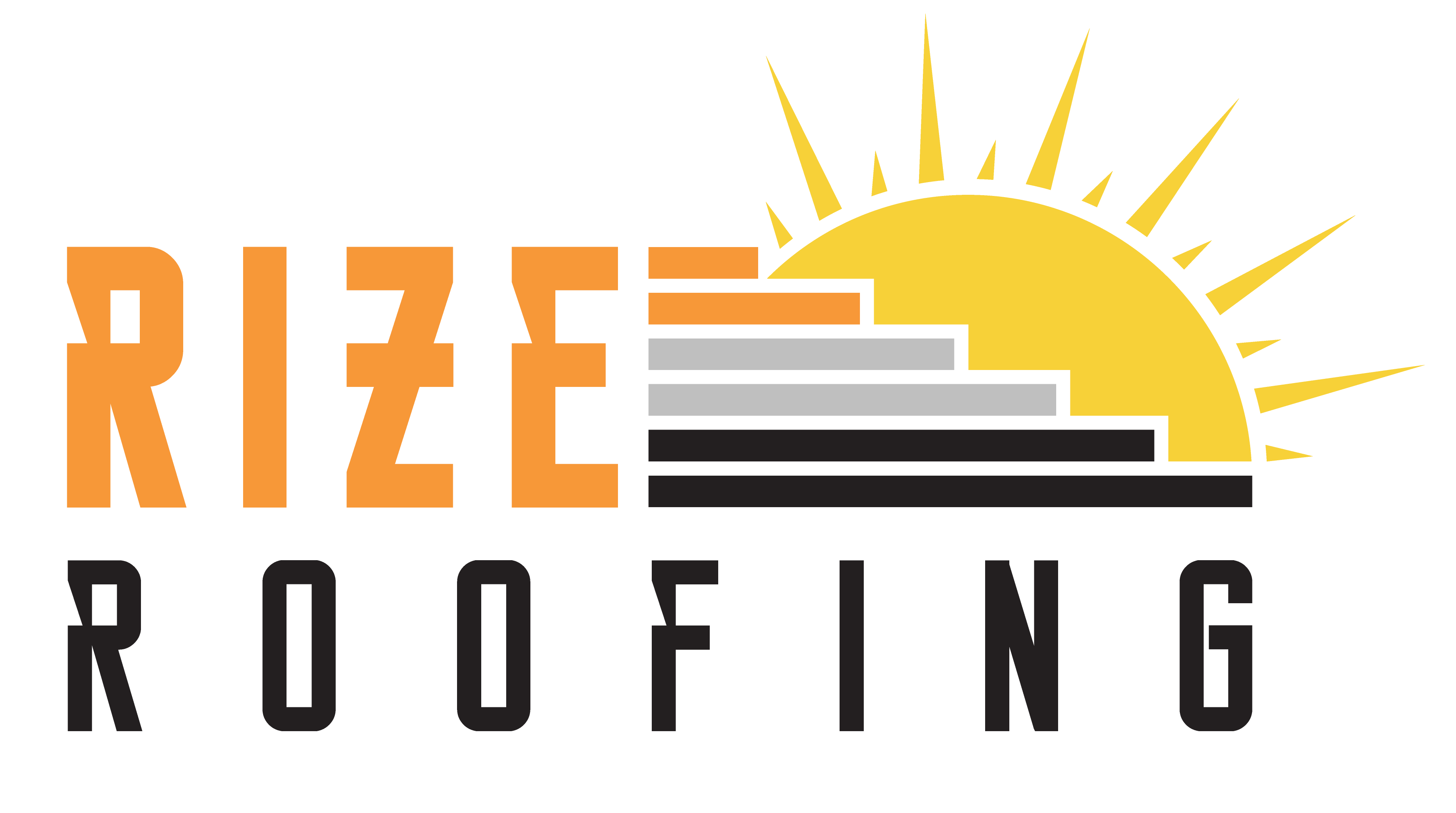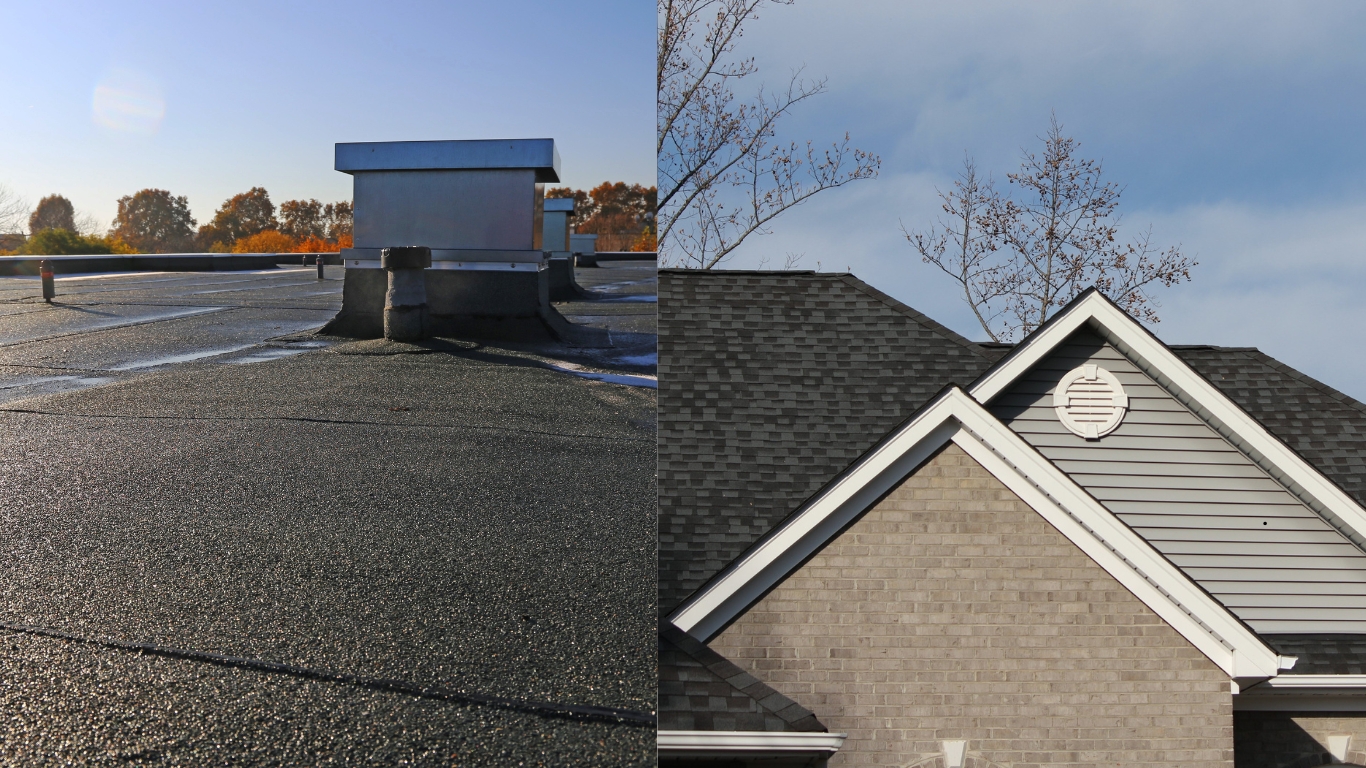Flat Roof vs. Pitched Roof: Pros & Cons for Colorado Homes
When building or replacing a roof in Colorado Springs, one of the most important design choices is the roof type. Should you go with a flat roof or a pitched roof? Each option has its benefits and drawbacks—especially when you factor in Colorado’s climate, which brings everything from snow and hail to high winds and intense sun.
At RIZE Roofing, we help homeowners choose roofing systems that match their home’s needs, style, and weather challenges. In this blog, we’ll break down the key differences between flat and pitched roofs, and help you decide which one is best for your Colorado home.
Flat Roofs: Pros and Cons
Flat roofs are most common on modern homes, commercial buildings, and some additions or garages. While they appear completely flat, they are built with a slight slope (usually 1/4 inch per foot) to allow for drainage.
Pros of Flat Roofs
- Modern Aesthetic
Flat roofs give homes a sleek, minimalist look that works well with contemporary architecture. - Easier Access and Maintenance
Because of the low slope, flat roofs are easier and safer to access for inspections, repairs, or HVAC maintenance. - Additional Usable Space
A flat roof can be used for a rooftop patio, garden, or even solar panel installations with adjustable racking. - Lower Construction Costs
Flat roofs typically require fewer materials and less labor than pitched roofs, potentially lowering installation costs.
Cons of Flat Roofs
- Drainage Issues
Flat roofs are more prone to water pooling, which can lead to leaks and water damage if not properly designed and maintained. - Shorter Lifespan
Flat roofs often use membrane or modified bitumen materials, which tend to have shorter lifespans than pitched roofing materials like asphalt shingles or metal. - Snow Accumulation
Colorado’s heavy snow can collect on flat roofs and cause structural strain or ice dam issues if not regularly removed. - Limited Style Compatibility
Flat roofs may not complement traditional home styles like ranch, colonial, or craftsman homes.
Pitched Roofs: Pros and Cons
Pitched (or sloped) roofs are the standard for most residential homes in Colorado. They come in a variety of styles—gable, hip, shed, and more—and are designed to shed water and snow easily.
Pros of Pitched Roofs
- Excellent Drainage
The sloped design helps snow and rain run off the roof naturally, reducing the risk of leaks and water damage. - Longer Lifespan
Pitched roofs typically use more durable materials like asphalt shingles, tile, or metal, which last longer and stand up better to Colorado’s harsh climate. - Better Insulation and Ventilation
A pitched roof creates attic space, allowing for better insulation, airflow, and energy efficiency year-round. - Versatile Style Options
Pitched roofs are suitable for almost all architectural styles and can add character and curb appeal to a home.
Cons of Pitched Roofs
- Higher Installation Cost
Pitched roofs often require more materials and complex framing, which can increase the overall cost of installation. - More Difficult to Access
Maintenance and inspections can be more challenging (and less safe) due to the slope and height. - Limited Rooftop Usability
Pitched roofs don’t provide flat space for a rooftop deck or garden, and solar panel installation may require strategic placement.

Flat vs. Pitched Roof in Colorado: What’s Best for You?
Feature | Flat Roof | Pitched Roof |
Design Style | Modern, minimal | Traditional, versatile |
Drainage | Requires proper system design | Naturally sheds water and snow |
Durability | Shorter lifespan in harsh weather | More durable and long-lasting |
Maintenance | Easier to access | Harder to reach but less frequent |
Weather Resistance | Less suited for snow-heavy areas | Ideal for Colorado’s climate |
Usable Space | Can support decks or solar racks | Not ideal for rooftop use |
Need Help Deciding? RIZE Roofing Has You Covered
Whether you’re building new, renovating, or replacing your roof, the team at RIZE Roofing can help you weigh the pros and cons of flat vs. pitched roofing for your Colorado home.
We’ll consider:
- Your home’s style and structure
- Colorado Springs weather challenges
- Budget, longevity, and maintenance needs
- Solar panel installation plans
- HOA or architectural guidelines
Schedule a Roof Consultation Today
Not sure which roof type is right for your home? Let RIZE Roofing provide expert guidance and a no-obligation inspection.
Call us today or contact us online to schedule a consultation. We’ll help you choose a roof that fits your home, your lifestyle, and Colorado’s unique climate.

